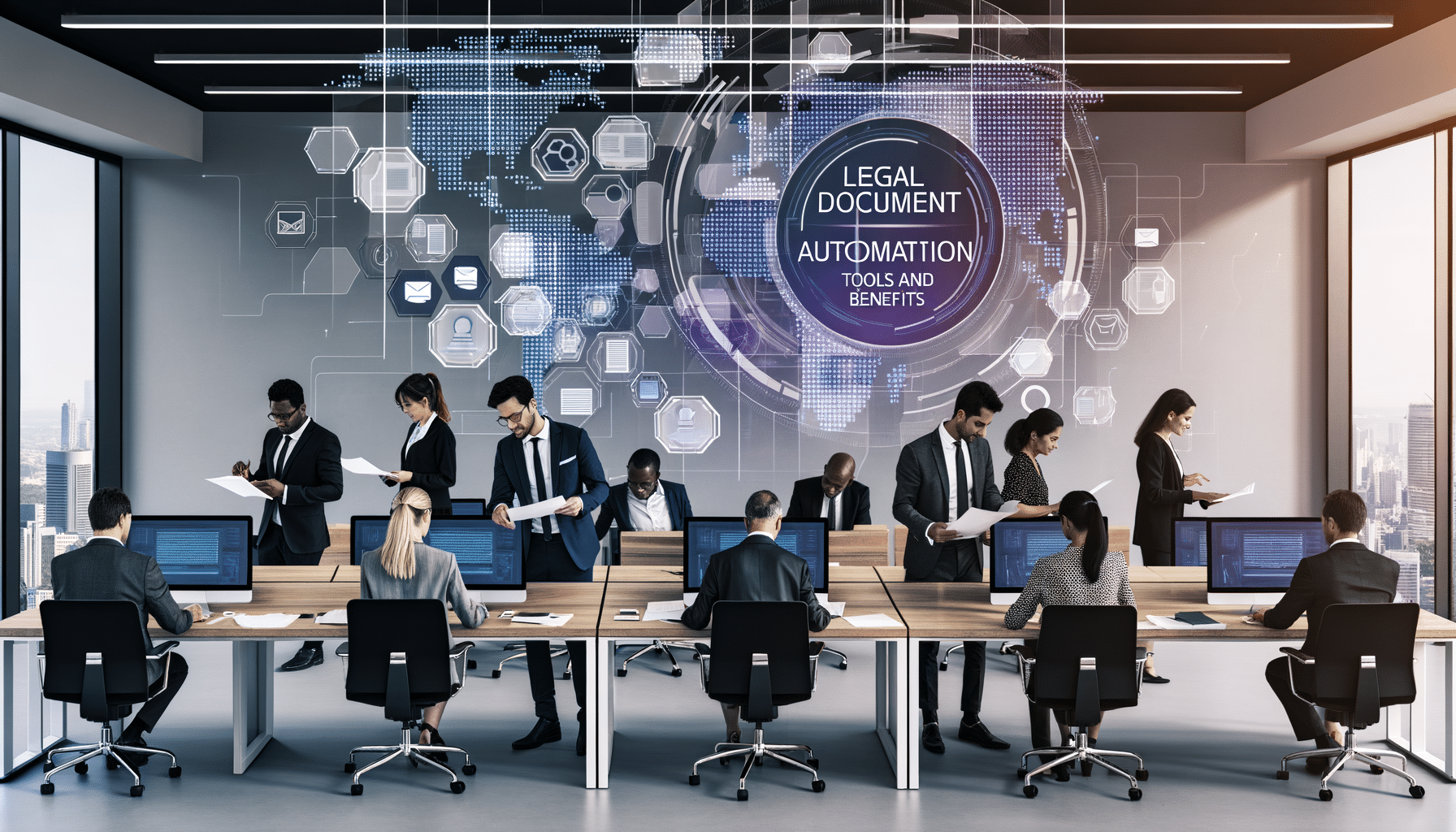- Technology Integration
- September 3, 2024
Exploring the Role of Artificial Intelligence in Legal Filing

Revolutionizing Legal Filing with Artificial Intelligence: A Deep Dive
As legal professionals, we’re all familiar with the mountain of paperwork that comes with legal filing. It’s painstakingly laborious and often riddled with the risk of human error. In the fast-paced world we operate in, time is a precious commodity. This is where the magic of Artificial Intelligence steps in, offering an incredible opportunity to simplify and automate these processes. Let’s explore how AI is transforming legal filing and making a tangible impact on our daily operations.
Understanding the Challenge of Traditional Legal Filing
Legal filing has always been a significant burden for law firms and in-house legal departments. It involves a plethora of documents, each requiring meticulous attention to detail. The traditional manual filing system is not only time-consuming but also fraught with errors, including misclassification or misplacement of critical documents.
I recall when I first faced the challenge of overseeing document filing. The endless hours spent ensuring document accuracy and compliance were daunting. At that moment, I wished for a more efficient method—one that would guarantee accuracy without the time drain. That’s when I turned to Artificial Intelligence.
How Artificial Intelligence is Addressing Legal Filing Challenges
The integration of AI within legal filing processes is a game-changer. Imagine AI-powered tools that can seamlessly automate the categorization and retrieval of documents. They accurately sift through enormous data sets, identify patterns, and learn over time. The benefit? Drastically reduced chances of error and a significant uptick in efficiency.
Automating Document Classification
AI algorithms excel at document classification, discernibly better than manual efforts. They can meticulously tag and organize records based on custom criteria, allowing for quick searches through natural language queries. No longer do we have to dig through mountains of paperwork. It’s like having a personal assistant who’s always spot-on.
Enhancing Security and Compliance
Compliance is non-negotiable in the legal space. Here, AI showcases its true strength by automating compliance management. It adheres to standards like GDPR and HIPAA, ensuring every document filed meets stringent legal requirements. Moreover, it bolsters data security, implementing many layers of protection and preventing unauthorized access, keeping sensitive information safe.
The Role of Blockchain in Guaranteeing Data Integrity
While AI streamlines processes, Blockchain technology ensures data integrity. The records filed are immutable, tamper-proof, and continuously verified. With blockchain, once a document is filed, its integrity is guaranteed, forever untouched by external threats.
Impacts and Benefits of AI Integration
Implementing AI in the legal filing process brings a cornucopia of benefits:
- Time Savings: AI drastically reduces the time needed to file and retrieve documents, enabling legal professionals to focus on strategic tasks.
- Error Reduction: Automating classification and compliance significantly minimizes the risk of human error.
- Cost Efficiency: While the initial investment in AI might seem high, the long-term cost savings from streamlined operations and reduced errors are evident.
- Scalability: AI scales effortlessly, managing increasing workloads without compromising performance.
Leveraging AI for a Future-Ready Legal Department
The world of legal filing is undergoing a seismic shift. Legal practices that embrace AI stand to gain a competitive edge, reflecting the essence of modern legal operations.
Transitioning to AI-infused filing systems is more than a technological upgrade; it’s a strategic imperative. The savings in time, cost, and the peace of mind that comes with compliance and security are priceless.
Concluding Thoughts: Join the Revolution
Embracing AI means unlocking new possibilities within legal operations. It is a decisive step towards future-proofing businesses against technological disruptions—an investment into the longevity and sustainability of our legal practices.
Engage with this transformative technology and observe first-hand how the landscapes of legal filing shift. Let me know your thoughts on AI’s role in legal proceedings, or follow my journey as I continue to explore new vistas in technology integration.
Toshendra Sharma is the visionary founder and CEO of RecordsKeeper.AI, spearheading the fusion of AI and blockchain to redefine enterprise record management. With a groundbreaking approach to solving complex business challenges, Toshendra combines deep expertise in blockchain and artificial intelligence with an acute understanding of enterprise compliance and security needs.
Related Posts

Legal Challenges in Adopting AI-Powered Evidence Analysis
Understand the legal hurdles of integrating AI in analyzing legal evidence and case materials.
- November 1, 2024

Legal Document Automation: Tools and Benefits
Explore the tools and advantages of automating legal document processes.
- October 13, 2024
Archives
- December 2024
- November 2024
- October 2024
- September 2024
- August 2024
- July 2024
- June 2024
- May 2024
- April 2024
- March 2024
- February 2024
- January 2024
- December 2023
- November 2023
- October 2023
- September 2023
- August 2023
- July 2023
- June 2023
- May 2023
- April 2023
- March 2023
- February 2023
- January 2023
- December 2022
- November 2022
- October 2022
- September 2022
- March 2019
Want to get more content like this?
Signup to directly get this type of content to your inbox!!
Latest Post
Organizing External Auditor Access
- December 22, 2024
Document Control in Manufacturing Plants
- December 21, 2024
Handling Rush Financial Report Requests
- December 20, 2024
Managing Record Access After Staff Changes
- December 19, 2024





